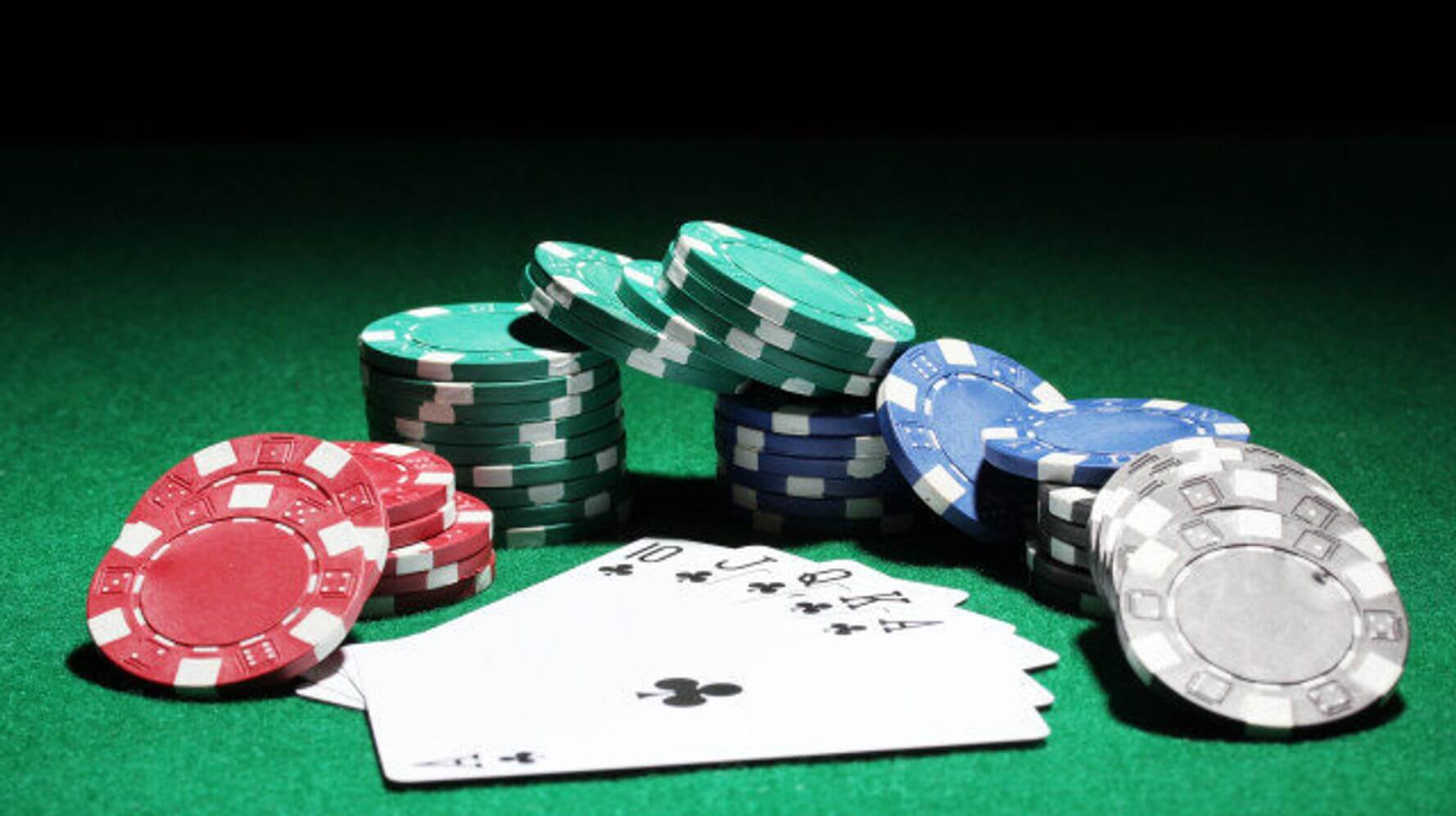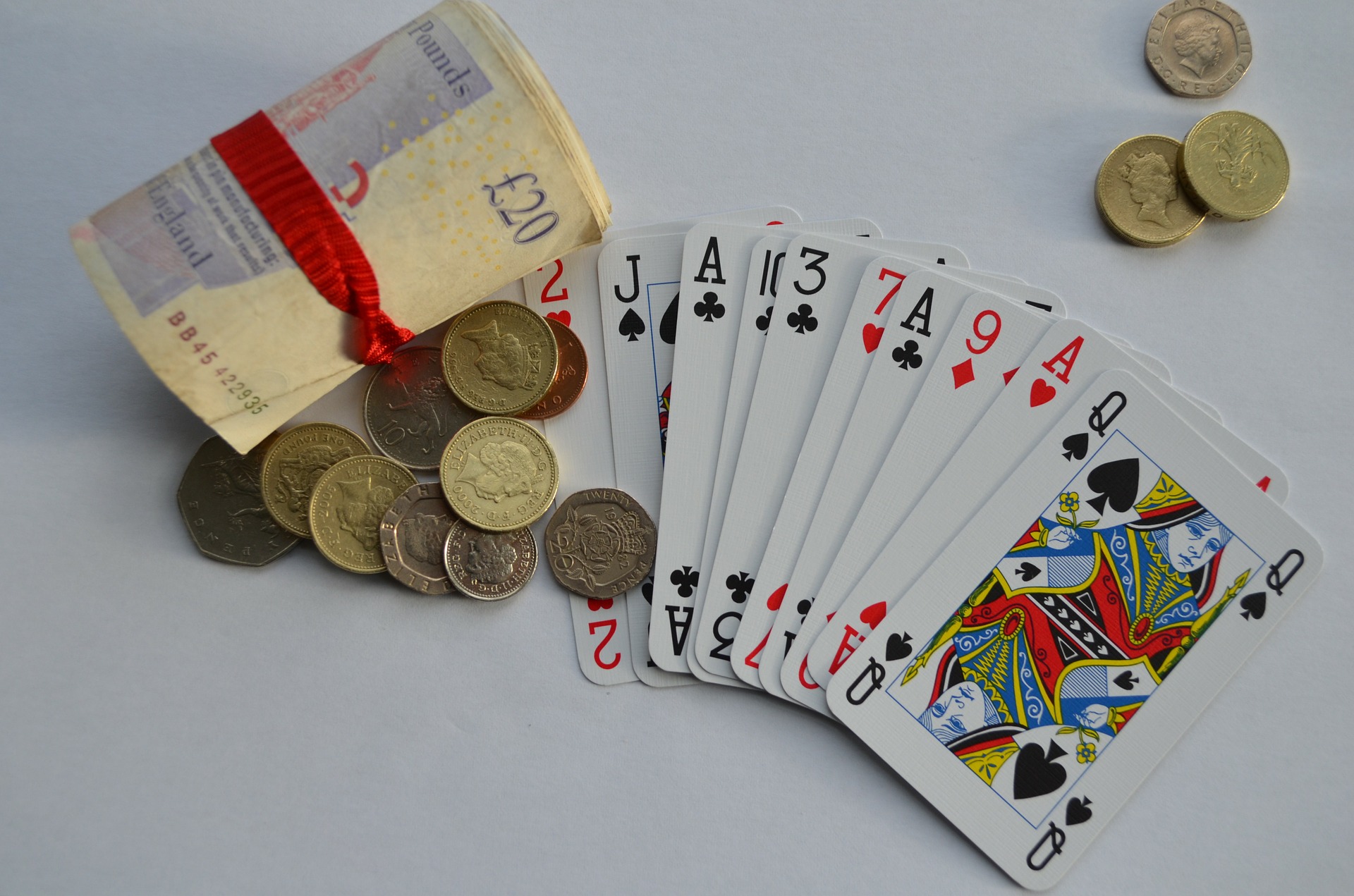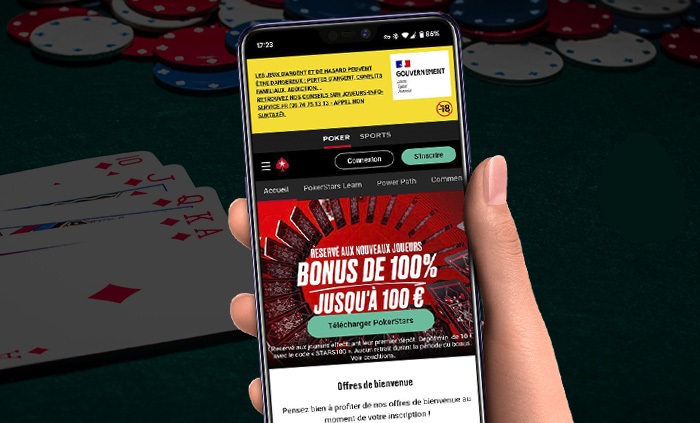Is Online Poker Illegal? Understanding Laws, Risks, and Where You Can Play Legally
Online poker’s popularity has exploded over the past decade but the question of whether it’s actually legal keeps coming up. I’ve noticed a lot of confusion about the laws that govern online gambling and it’s easy to see why. Rules change from one place to another and what’s allowed in one state might be strictly off-limits in another.
I know how tempting it is to jump into a virtual card room and test your skills but it’s important to understand the legal risks first. If you’re curious about where online poker stands in the eyes of the law you’re not alone. Let’s break down what makes online poker illegal in some places and what you need to watch out for before you play.
Understanding the Legal Status of Online Poker

Understanding-the-Legal-Status-of-Online-Poker
I identify online poker’s legal framework by recognizing national, state, and local jurisdictions. Federal statutes, such as the Unlawful Internet Gambling Enforcement Act (UIGEA) of 2006, regulate banking transactions related to online gambling but don’t criminalize playing poker online directly for individual players. State laws create patchwork legality, with some states—like New Jersey, Pennsylvania, and Nevada—allowing licensed online poker while others ban it explicitly.
I differentiate offshore platforms from regulated sites, as only licensed operators within legal states conduct business under strict consumer protections. Unlicensed offshore poker sites often operate in gray legal areas, exposing players to greater risks and limited recourse in disputes.
I reference major jurisdictions below.
| Region | Online Poker Legality | Examples of Legal Status |
|---|---|---|
| United States | Varies by state | Nevada, New Jersey, Pennsylvania — Legalized and regulated |
| Europe | Largely regulated | UK — Fully legal, Spain — Licensed national platforms |
| Asia | Mostly prohibited | China — Illegal, India — Regulated on a state-by-state basis |
| Australia | Restricted | Online play limited to certain operators |
| Canada | Ambiguous, province-specific | Quebec, British Columbia — Offer legal provincial sites |
Enforcement approaches differ, with some authorities targeting operators while others penalize individual players. Where ambiguous, courts may interpret older gambling statutes to include internet-based games, further complicating the online poker landscape.
I track these distinctions to ensure compliance with local laws and avoid violations related to prohibited forms of online gambling.
Key Reasons Why Online Poker Is Considered Illegal
Authorities rely on several legislative and regulatory measures to classify online poker as illegal in many places. These restrictions stem from both federal laws and diverse state-level approaches, which together shape the legal landscape for online poker platforms and players.
Federal Laws Impacting Online Poker
Federal statutes restrict online poker primarily through financial regulations. The Unlawful Internet Gambling Enforcement Act (UIGEA) of 2006 blocks banks and payment processors from handling transactions linked to illegal internet gambling sites. Although UIGEA doesn’t outlaw playing online poker, it penalizes financial institutions for processing payments to most online gambling operators not meeting set compliance criteria.
The Federal Wire Act also influences the status of online poker. Interpreted by the Department of Justice to apply to most forms of gambling transmitted across state lines, the Wire Act prevents operators from offering online poker to players in states where it’s illegal, especially when data or payments cross borders.
| Federal Law | Key Provision | Effect on Online Poker |
|---|---|---|
| UIGEA (2006) | Prohibits banking for illegal gambling | Restricts payments to many poker operators |
| Federal Wire Act | Bans interstate gambling transmissions | Limits operators to legal state jurisdictions |
State-by-State Legal Variations
Online poker law varies markedly by state. Some states, like New Jersey, Pennsylvania, and Nevada, have established rigid licensing for regulated sites, making online poker legal only through approved operators. In other states, statutes prohibit all forms of online gambling. Some regions haven’t explicitly addressed online poker in legislation, creating ambiguity for both players and platforms.
Enforcement methods and penalties also differ. While most states target unlicensed operators, a few jurisdictions, such as Washington, criminalize individual players accessing prohibited sites. This inconsistency creates legal risk for players residing in or traveling between different jurisdictions.
| State | Online Poker Status | Enforcement Focus |
|---|---|---|
| New Jersey | Legal, licensed sites | Operators, consumer safety |
| Utah | Explicitly banned | Players and operators |
| Washington | Felony for players | Individual penalties |
| Delaware | Legal, state-operated | Licensed operators only |
| Texas | No explicit law, ambiguous | Unregulated market risks |
These overlapping federal restrictions and diverse state requirements drive the patchwork of laws that make online poker illegal in many areas.
Major Legal Cases and Precedents
Several major court cases and DOJ actions have shaped the status of online poker illegality in the US. These decisions provided context for current regulations and enforcement.
Landmark Federal Cases
- United States v. Scheinberg et al. (“Black Friday,” 2011)
In April 2011 federal authorities seized leading poker sites PokerStars, Full Tilt Poker, and Absolute Poker for violations of the UIGEA and bank fraud laws. This action forced most US-facing online poker platforms to exit the market until the legal environment changed.
- United States v. DiCristina (2012)
This case challenged whether poker qualified as gambling under the Illegal Gambling Business Act (IGBA). The district court ruled that poker was a game of skill, but the decision was later overturned by the Second Circuit, stating IGBA applies to poker and restoring federal authority to prosecute illegal poker operations.
- Wire Act Clarification (2011 DOJ Opinion, 2018 Reversal)
In December 2011 the DOJ issued an opinion limiting the Wire Act’s scope to sports betting, paving the way for state-regulated online poker. In 2018 a new DOJ opinion attempted to expand the Wire Act to cover all online gambling, creating renewed confusion before courts sided with state regulators.
Influential State-Level Cases
- New Jersey v. Atlantic City Casinos (2013 legal challenge)
New Jersey’s effort to legalize and license online casino and poker games faced litigation from federal and state interests. Courts ultimately upheld New Jersey’s right to regulate intrastate online poker, leading to the 2013 launch of legal internet gaming in the state.
- Pennsylvania v. Various Offshore Operators (2017–2019)
Pennsylvania challenged unlicensed offshore sites for offering online poker to residents. The state’s legal victories solidified its regulatory authority, supporting the launch of state-licensed poker platforms.
Table: Major Legal Cases Affecting Online Poker
| Case Name | Year | Court/Authority | Main Issue | Outcome |
|---|---|---|---|---|
| US v. Scheinberg (“Black Friday”) | 2011 | SDNY, DOJ | UIGEA, bank fraud | Major sites forced out, legal crackdown |
| US v. DiCristina | 2012 | EDNY, Second Circuit | IGBA, game of skill vs. gambling | Poker included as gambling under IGBA |
| Wire Act Clarification – DOJ | 2011 | DOJ Office of Legal Counsel | Scope of Wire Act | Sports betting only; states regulate poker |
| New Jersey v. Atlantic City Casinos | 2013 | NJ Court, Federal Review | State online poker regulation | Court upheld state’s regulatory authority |
| Pennsylvania State Actions | 2017 | PA Courts, Regulators | Offshore poker legality | State-licensed poker platforms approved |
These cases created the framework for interpreting online poker legality, varied by state and federal interpretations, and fostered legal poker in New Jersey, Pennsylvania, and similar regulated markets.
Consequences of Playing Online Poker Illegally

Consequences-of-Playing-Online-Poker-Illegally
Playing online poker on unregulated platforms exposes me to various legal, financial, and reputational dangers. Penalties and liability increase as authorities intensify enforcement, affecting both individual players and operators.
Penalties for Players
Penalties for players engaging in illegal online poker differ by region and enforcement approach.
| Jurisdiction | Possible Penalties | Examples |
|---|---|---|
| United States | Misdemeanor charges, fines | $500–$5,000 fines in some states |
| Australia | Warning letters, blocking | ISP blacklisting, account closures |
| Europe (selected) | Confiscation of winnings | Loss of €1,000+ for repeat offenses |
| Asia (selected) | Criminal prosecution, detention | Arrests in China, South Korea |
Fines, misdemeanor records, or asset forfeiture affect my access to banking, employment, and travel, especially when local prosecutors actively pursue players. In some territories like China, criminal charges and detainment arise from even small-stake poker games. If I win money on an illegal site, authorities may seize funds or freeze related bank transactions.
Risks for Operators
Risks for operators hosting illegal online poker platforms involve regulatory, criminal, and commercial liability.
| Risk Type | Potential Outcomes | Country Examples |
|---|---|---|
| Regulatory action | License revocation | UK, Malta, New Jersey |
| Criminal charges | Prosecution, fines | United States, Singapore |
| Civil lawsuits | Player restitution | Australia, Germany |
| Financial penalties | Multi-million $ fines | US DOJ Black Friday cases |
Operators face prosecution and asset seizure if they serve prohibited markets, especially in the US, where federal actions like the 2011 “Black Friday” led to indictments and site shutdowns. Payment processors partnering with illegal poker operators also risk criminal liability, blocked transactions, and forfeiture.
Legal Consequences for Casino Affiliates
Affiliates promoting illegal online poker sites face parallel legal consequences to operators. If I run a casino affiliate site and direct users to unlicensed poker platforms, regulatory bodies may impose fines or blacklist my web properties. State-level enforcement pursued casino affiliates during New Jersey’s regulated market launch, fining some sites over $20,000 for unlicensed promotion. In countries like Sweden, Italy, and the UK, license suspensions and reputational harm extend to both affiliates and their casino marketing partners.
| Region | Primary Risk | Real-World Examples |
|---|---|---|
| United States | Civil fines, blacklisting | Affiliate seizures during Black Friday |
| Europe | License removal, penalties | UK Gambling Commission revocations |
| Australia | Blocking, prosecution | Warnings to high-traffic affiliates |
Legal casino advertising only extends to licensed poker sites, not unregulated offshore platforms, due to compliance mandates.
Efforts Toward Legalizing Online Poker
Legislators have introduced pro-poker bills in over 20 U.S. states since 2011. Lawmakers in states like New Jersey, Pennsylvania, Michigan, and Nevada enacted comprehensive statutes to legalize and regulate online poker platforms. Advocates for regulation cite consumer protection, tax revenue, and the unpopularity of offshore poker as main arguments. State-level coalitions, such as the Multi-State Internet Gaming Agreement, allow shared poker liquidity among legal states to increase player pools and market viability.
Interest groups like the Poker Players Alliance and industry stakeholders continually lobby federal and state governments for wider legalization. These groups support responsible gambling measures, AML compliance, and secure payment frameworks to gain legislative traction. I see regular efforts in Congress to re-examine the Wire Act and UIGEA scope, but political and lobbying divisions hinder federal progress.
Public referendums have played a minor role, with most legislation advanced through state legislatures. States that legalize online poker routinely require operators to partner with local land-based casinos for licensing, further aligning online and brick-and-mortar interests.
Table: Key U.S. States Legalizing Online Poker
| State | Year Legalized | Casino Partnership Required | Shared Liquidity | Tax Rate (%) |
|---|---|---|---|---|
| Nevada | 2013 | Yes | Yes | 6.75 |
| New Jersey | 2013 | Yes | Yes | 15 |
| Pennsylvania | 2017 | Yes | No | 16 |
| Michigan | 2021 | Yes | Yes | 20-28 |
Federal legalization attempts like the Internet Poker Freedom Act (2013) and multiple reform efforts after 2018 failed to generate consensus. As a result, online poker growth centers in states with commercial casino industries and established regulatory bodies, as only those states possess the infrastructure and political will to operationalize safe, regulated markets.
Alternatives for Legal Online Poker Play

Alternatives-for-Legal-Online-Poker-Play
Licensed Online Poker Platforms
I choose legal online poker platforms because they’re regulated and provide consumer safeguards, unlike offshore sites operating in legal gray areas. States like New Jersey, Pennsylvania, Michigan, and Nevada host government-licensed poker rooms, such as PokerStars, WSOP.com, and BetMGM Poker. These platforms verify player location through geolocation and confirm identity before granting access.
Availability of Licensed Online Poker by State
| State | Legal Yes/No | Licensed Platforms |
|---|---|---|
| New Jersey | Yes | PokerStars, WSOP, BetMGM |
| Pennsylvania | Yes | PokerStars, BetMGM |
| Michigan | Yes | PokerStars, BetMGM |
| Nevada | Yes | WSOP |
| Delaware | Yes | 888poker |
| California | No | None |
| Texas | No | None |
Sweepstakes Poker Sites
I play at sweepstakes poker sites, such as Global Poker and ClubGG, when regulated poker isn’t available in my state. These operators offer games using virtual currencies that can be exchanged for prizes or cash. Sweepstakes models are legal in most U.S. states because they avoid real-money wagering, as ruled in multiple state regulatory reviews.
In-Person Poker Rooms and Casinos
I visit licensed brick-and-mortar poker rooms or casino cardrooms, such as the Borgata Hotel Casino in New Jersey or Bellagio in Nevada, where online poker remains restricted or unavailable. These venues follow state gaming regulations and offer legal poker with oversight and compliance checks.
Multi-State Online Poker Agreements
I join multi-state poker pools (shared player liquidity) by using legal sites participating in the Multi-State Internet Gaming Agreement (MSIGA). This agreement connects players across New Jersey, Nevada, Michigan, and Delaware, expanding tournament options and increasing prize pools.
Legal Mobile Poker Apps
I use legal poker apps directly from regulated operators, such as WSOP.com and PokerStars, to access real-money online poker on mobile devices within authorized jurisdictions. These apps use strict age verification and GPS location restrictions to uphold compliance.
Legal Online Poker Platform Features
| Feature | Licensed Sites | Unlicensed Sites |
|---|---|---|
| Geolocation Enforcement | Yes | No |
| Player Fund Protection | Yes | No |
| Government Oversight | Yes | No |
| Responsible Gaming Controls | Yes | No |
| Age & Identity Verification | Yes | No |
| Multi-State Pooling | Yes | No |
| Customer Support Standards | High | Low |
I avoid offshore poker sites because they’re often unregulated and carry legal and financial risks, unlike state-approved alternatives with recourse and oversight.
Conclusion
Online poker’s legal status isn’t always clear-cut so it pays to stay informed and cautious. I always recommend checking your local laws and sticking with licensed platforms if you want to play safely. Taking the time to understand the rules in your area helps you avoid unnecessary risks and ensures you can enjoy the game with peace of mind.
Frequently Asked Questions
Is online poker legal in the United States?
Online poker legality depends on where you live. Some states, like New Jersey, Pennsylvania, Michigan, and Nevada, have legalized and regulated online poker. However, many other states still ban or restrict it. Always check your local laws before playing.
What federal laws affect online poker in the US?
Federal laws like the Unlawful Internet Gambling Enforcement Act (UIGEA) of 2006 regulate financial transactions related to online gambling but do not directly criminalize playing online poker. The Wire Act restricts interstate gambling transmissions; however, its scope has been debated in recent years.
Can I play on any online poker site from my state?
No, you should only play on licensed online poker sites regulated by your state’s gaming authority. Using unregulated offshore sites can put you at legal and financial risk if those sites are illegal in your area.
What are the risks of playing illegal online poker?
Playing illegal online poker can result in fines, criminal charges, and loss of winnings. Operators and affiliates can face regulatory actions, lawsuits, and blacklisting. Unlicensed sites also lack consumer protections, such as secure banking and fair play guarantees.
Why is online poker illegal in some states but not others?
Each state makes its own laws about gambling, leading to different rules and restrictions for online poker. Some states allow, regulate, and license online poker operators, while others have laws that explicitly ban it.
Which states currently offer legal, regulated online poker?
As of now, New Jersey, Pennsylvania, Michigan, Delaware, and Nevada have legal online poker with regulated sites. Other states may have legislation pending but have not yet launched licensed platforms.
Are there ways to play poker online legally in prohibited states?
Some sweepstakes poker sites allow players in most states to play for prizes legally, as they use a different legal framework. In-person poker rooms and casinos are also options where legal.
What is the Multi-State Internet Gaming Agreement (MSIGA)?
The MSIGA is a pact among certain states letting them pool their online poker players, enhancing game selection and tournament offerings. Participating states include New Jersey, Nevada, Delaware, and Michigan.
What was the impact of recent legal cases on online poker?
Major cases like United States v. Scheinberg and United States v. DiCristina shaped how the law treats online poker, confirming that it is gambling under federal laws. DOJ opinions about the Wire Act have also impacted state and federal regulations.
How can I ensure an online poker site is legal and safe?
Check that the site is licensed by your state’s official gambling regulator, displays clear licensing information, and uses secure payment methods. Avoid offshore and unregulated platforms to protect your money and personal data.
